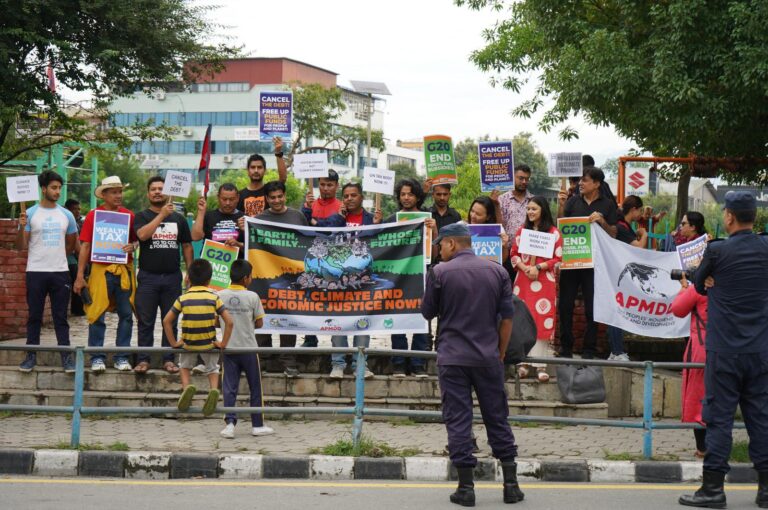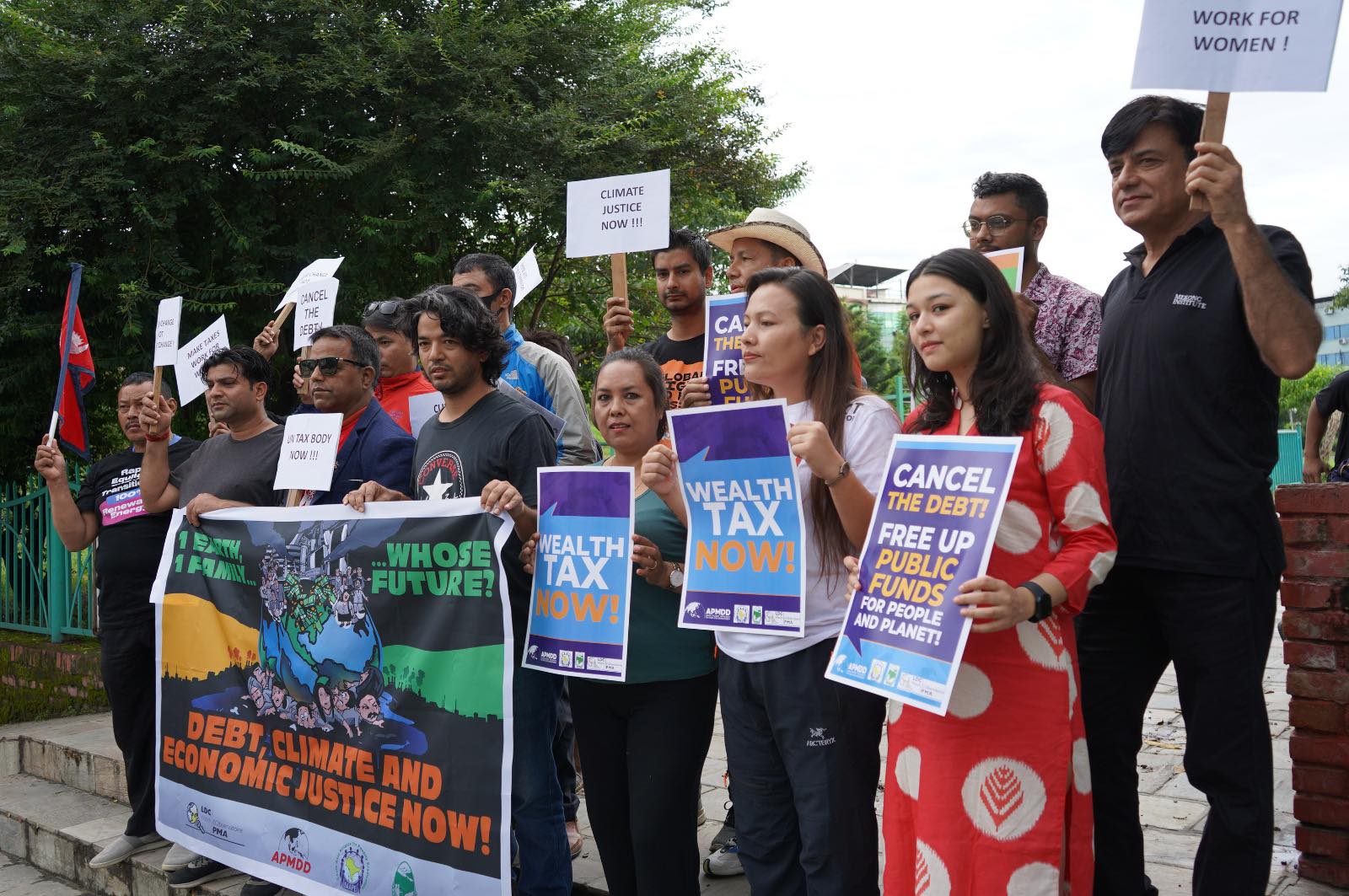Kathmandu, September 8, 2023 – Social activists and climate campaigners converged in Kathmandu today, joining counterparts in Asian cities such as Manila, Jakarta, Dhaka, Karachi, Lahore, and Colombo, to voice their demands just days before the 2023 Group of 20 (G20) summit.
The protesters urged G20 nations, responsible for 75% of global trade and 85% of the world’s GDP, to address pressing issues of debt, economic inequality, and climate justice. Lidy Nacpil, coordinator of the Asian Peoples’ Movement on Debt and Development (APMDD), emphasized the historical responsibility of the G20 in tackling issues plaguing developing countries, such as crippling indebtedness and reliance on fossil fuels. The G20, responsible for 80% of global power sector emissions, has seen coal power CO2 emissions rise to 1.6 tons per capita in 2022.
The activists called for an end to fossil fuel subsidies and a just transition to renewable energy systems. The two-day G20 summit, hosted by India in New Delhi, beginning on September 9, will focus on climate change, clean energy transition, and poverty eradication. Rural Reconstruction Nepal (RRN) representative, Dr. Suresh Tamang, demanded increased climate finance, citing the $400 billion per year needed for loss and damage financing in developing countries. The G20, he noted, must meet their fair share contributions, as some nations fall short, and the U.S. only contributes a fraction of its share. Abhishek Shrestha, from Digo Bikash Institute (DBI) stated that “G20 governments and all governments must mobilize financing to enable people and communities to deal with climate impacts and to ensure a just transition and system-wide changes necessary to stop climate catastrophe.
This is an obligation that the G20 cannot ignore” Additionally, the protesters urged G20 governments to cancel debt for countries facing crises, calling the Debt Service Suspension Initiative (DSSI) inadequate. Lastly, they implored G20 leaders to cease blocking progress towards a UN Tax Convention, citing the exploitation of natural resources and labor in the Global South by multinational corporations. These protests come despite heavy security measures in India, where marginalized communities have been evicted, and train services disrupted in preparation for the G20 summit.
As leaders from the G20 convene, they face mounting pressure to address these global concerns and commit to actionable solutions, as voiced by the protesters in Kathmandu and across Asia.








प्रतिक्रिया